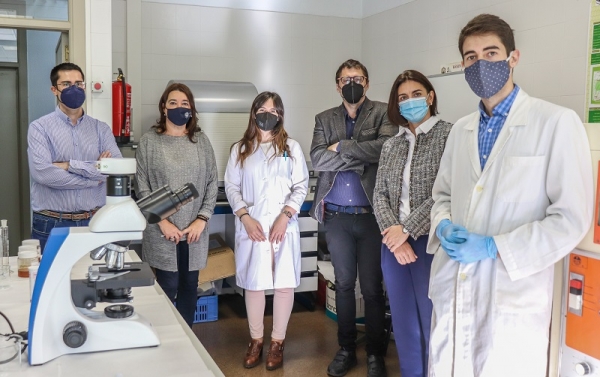Currently, the food authenticity of a product, understood as the degree to which its labelling accurately describes the article itself, is one of the most debated problems in food industries at the European and global levels. To participate in this debate the European Commission has facilitated the implementation of the MEDIFIT project, which addresses this conflict with regards to two traditional Mediterranean products: honey and cheese, using the latest analytical and software technologies.
MEDIFIT features participation by research staff from Germany, Greece, Turkey, Malta and Tunisia, as well as Spain. Among them is a research group at the University of Cordoba, coordinated by Professor Fernando Pérez Rodríguez, who is in charge of developing the computer system that allows information related to the authenticity, food safety and traceability of these two products to be shared.
As regards software development, the Spanish team is working with a non-centralized data system based on the EPCIS GS 1 standard (https://www.gs1es.org/). The project also seeks to acquire the foods’ analytical footprints through non-destructive processes; that is, they extract the information from the product without doing any damage to or altering it.
Both parts of the project are integrated, giving rise to a flexible software structure that allows for the transmission of information on the food to the end user, making use of the Internet of Things concept. In addition, it furnishes the food sector with software solutions through Industry 4.0 technologies, incorporating the routine use of innovative analytical methods to control the traceability and integrity of the foods. These systems will be used to predict and act in the event of possible alterations to the product's food safety.
One of the challenges of this project is to achieve certain shared standards; that is, a common language between the different members and methodologies for the accreditation of authenticity. Likewise, analytical methods will be optimized in order to introduce them into the food industry, favouring the acquisition of information on food authenticity and safety.
Fernando Pérez Rodríguez, coordinator of the project at the UCO, stated that this is an action/innovation system, as the aim is to demonstrate a technology that has already been developed, but at a more practical level. "The ultimate goal is to be able to use it and verify its validity, always focused on these two food chains: honey and cheeses," he explained.
For the group, participating in the European MEDIFIT project has been an opportunity to strengthen ties with scientists worldwide and to share knowledge and new ways of working.
More information is available at the following link: https://medifitprima.wordpress.com/
The MEDIFIT project- “An interlinked digital platform for Food Integrity and Traceability of relevant MEDIterranean supply chains” (PRIMA-S1-2019-MEDIFIT) is financed by the European Union through the PRIMA-S1-2019 call.
"This report is part of the project “CONSOLIDA-UCO ECT2020-000810", funded by MCIN/AEI/10.13039/501100011033 and by European Union “NextGenerationEU”/PRTR”.


